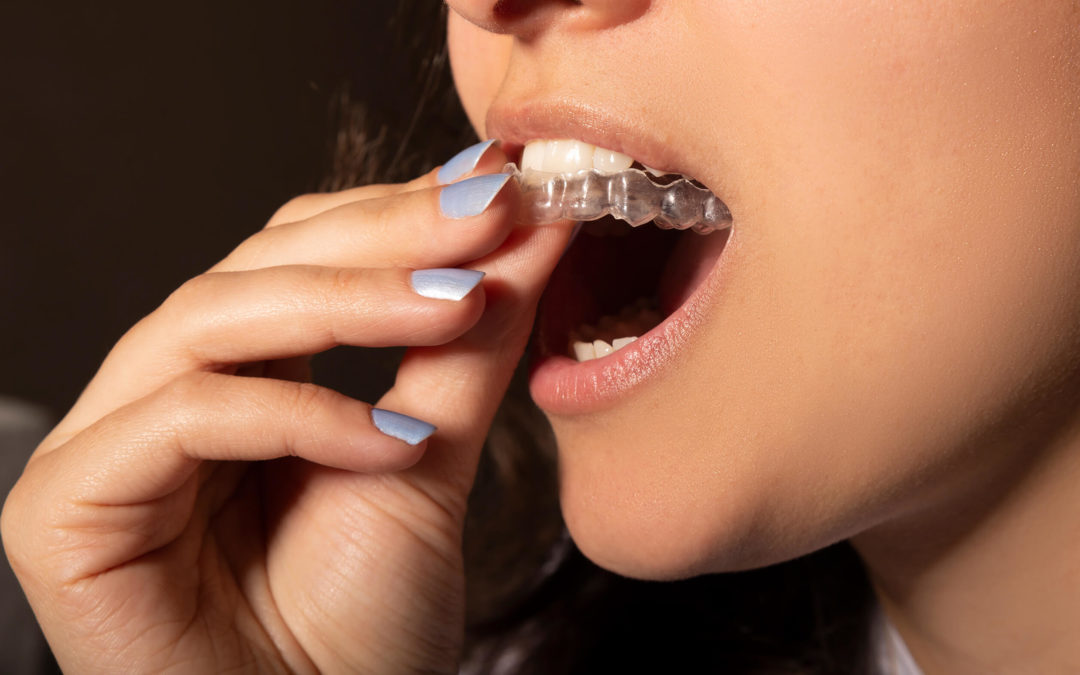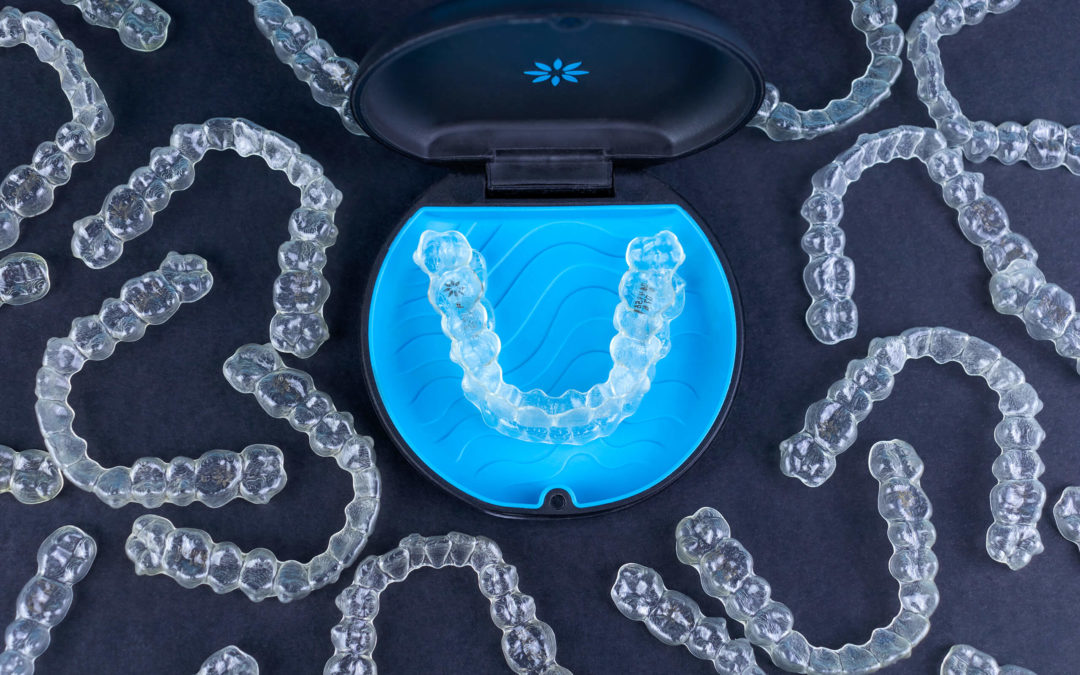Dental implants are artificial tooth roots made from titanium screws that are implanted into the jaw bone to restore the function and look of missing teeth. Once dental implants are placed in the jaw bone, they fuse with the surrounding bone and act as an anchor for a tooth prosthesis. Because they are secured within the jaw bone, dental implants offer the strongest restoration method available and can restore speaking and chewing function.
Dental implants are composed of three main parts: the implant, the abutment, and the dental prosthesis. The implant is a titanium screw that is placed under the gum line within the jawbone. The abutment piece screws into the implant, sits above the gum line, and serves as the attachment for the dental prosthesis. The dental prosthesis is the final component that sits above the gum line and replaces the missing tooth. Usually a dental crown is used, however for multiple missing teeth a dental bridge or implant-supported dentures may be used.
Did You Know?
Dental implants are made using titanium, because it is a biocompatible material. Materials that are biocompatible can be used within the body without triggering an immune system response. Titanium is a highly popular material because it works with the body to produce an ideal cellular response.
Frequently Asked Questions:
Am I a candidate for a dental implant?
You may be a candidate for dental implants if you have teeth that are damaged, decayed, or missing. Dental implants are especially beneficial for individuals with missing teeth because implants stimulate the jaw bone to prevent bone resorption. However, to be an ideal candidate for dental implants, you must also have an adequate amount of bone mass. If you have missing teeth that have been missing for over six months, you may be lacking the proper amount of bone mass.
Depending on your individual case, there are two different types of dental implants you may be a candidate for. The most commonly used type of dental implants are endosteal implants, which are screwed into the jaw bone. The other type of dental implants are subperiosteal implants, which sit just under the gum line on top of the jaw bone. To find out if you are an ideal candidate for dental implants and which type of dental implant is right for you, schedule a consultation with Dr. Alkass of Alkass Dental today!
What if I don’t have enough bone mass for dental implants?
If you don’t have enough bone mass for dental implants, you have a few options to increase your bone mass to stabilize dental implants. The most common option is to undergo a bone graft. A bone graft is used to build up bone mass in a particular area. For some types of bone grafts, bone is harvested from another area in your body, such as the ribs, hips, pelvis, or wrist, and then placed in the area requiring additional bone mass. In other types of bone grafts, a synthetic bone material is used to grow new bone.
Another option that can be used is a sinus lift. Sinus lifts are used to add bone mass to the upper jaw around the area of your molars and premolars. They are used to build up the bone mass between your upper jaw and sinus cavity in order to avoid damaging your sinus cavity. Similar to a regular bone graft, bone material is placed in the affected area to grow new bone.
The final option if you do not enough bone mass is to opt for subperiosteal implants. This type of dental implant sits on top of the bone instead of in the bone, therefore adequate bone mass is not required for proper stability. However, because subperiosteal implants are not implanted into the bone, they are generally not as stable.
How long do dental implants last?
Dental implants have an average lifespan of 10 years, but have the ability to last for up to 30 years. The lifespan of your dental implants will depend on how your body reacts to treatment, your dental habits, and your personal habits. To keep your dental implants lasting for a long time, you will want to avoid detrimental dental habits like chewing ice, nail biting, and using your teeth as an opener. You will also want to avoid detrimental personal habits such as smoking.
What can I expect from dental implant placement at Alkass Dental?
At Alkass Dental, we will sedate and anesthetize your during your dental implant procedure to keep you comfortable. If the affected tooth is decayed or damaged, it will first need to be extracted before placing the implant. Depending on your situation, you may need to wait for the extraction site to recover before having the implant placed.
If you have a missing tooth that you are replacing with a dental implant, you will be made comfortable to begin the procedure. Once you have been made comfortable, Dr. Alkass will make an incision in your gums to access your jaw bone. He will then prepare the tooth socket by shaping it accordingly to accommodate the titanium implant screw. The implant screw will then be screwed into place. At this point, the abutment may be screwed into the implant and the gums will be sutured shut with the abutment poking through. A provisional, or temporary, restoration may also be placed on the abutment until the final restoration is fabricated.
Once the implant has been placed, it will need to undergo a process called osseointegration to fully recover. Osseointegration is the process of bones fusing the dental implants in place. It takes about 3-6 months for the bones to fuse the implants in place, and once they are fused to place, the implants are effectively secured to the jaw bone. Once osseointegration has been completed, the permanent restoration can be fabricated and attached to the abutment.
What can I expect after having dental implants placed by Alkass Dental?
In the days immediately following your dental implant procedure, you may experience some minor swelling, pain, and possible bleeding. To keep you comfortable after your procedure, Dr. Alkass may prescribe pain medication or antibiotics. He will also recommend sleeping with your head elevated, getting plenty of rest, and minimizing physical activities.
During the first few weeks, you will also need to modify your diet to avoid damaging your dental implants while they heal. Until your implants have undergone osseointegration, they are not fully stabilized. Because of this, you will want to avoid eating any foods that could exert excess stress on the implants. You will also want to avoid chewing on the side your implant is on.
In the first 2-3 days after surgery, you will need to avoid hot foods in general because they can cause bleeding. You will also want to eat soft foods including yogurt, beans, steamed veggies, fish, applesauce, eggs, and pasta for the first few weeks. You will want to stick to this modified diet until Dr. Alkass gives you approval to move onto harder foods.
To maintain your dental implants, you will need to practice good oral hygiene. This should consist of a routine of brushing twice daily for two minutes at a time and flossing once a day. You will also want to visit Alkass Dental at least once every six months for your dental checkup and professional teeth cleaning.
How much will dental implants cost?
The exact cost of your dental implants will depend on the type of implant, extent of treatment, the tooth being treated, and the type of dental prosthesis being used. An average cost of dental implants is about $3,000-$4,500 per tooth. Although they have a higher upfront cost, dental implants are the longest-lasting restoration method and generally do not have to be replaced often. If you have dental insurance, you may be able to obtain partial coverage for your dental implant procedure.
Can dental implants fail?
As with any dental procedure, there is always the chance that it can fail. The most common reasons for dental implant failure are infection and bone loss. To prevent peri-implantitis, an infection that can form around the implant, it is highly important to follow all post-op instructions, take any prescribed antibiotics, and to keep the implant site clean after the procedure.
Bone loss, or a lack of adequate bone mass, is another reason for implant failure. Because of this, patients who do not have enough bone are encouraged to have either a bone graft or sinus lift prior to having their implants placed. To avoid the possibility of your implant integrating with existing bone, it is also recommended to avoid exerting any stress on the implant while it is healing.
For the best dental implants have to offer, schedule a consultation with Dr. Alexander Alkass today! Alkass Dental proudly serves Oakland County and the communities of Waterford, Bloomfield, Keego Harbor, Pontiac, Sylvan Lake, and White Lake.


